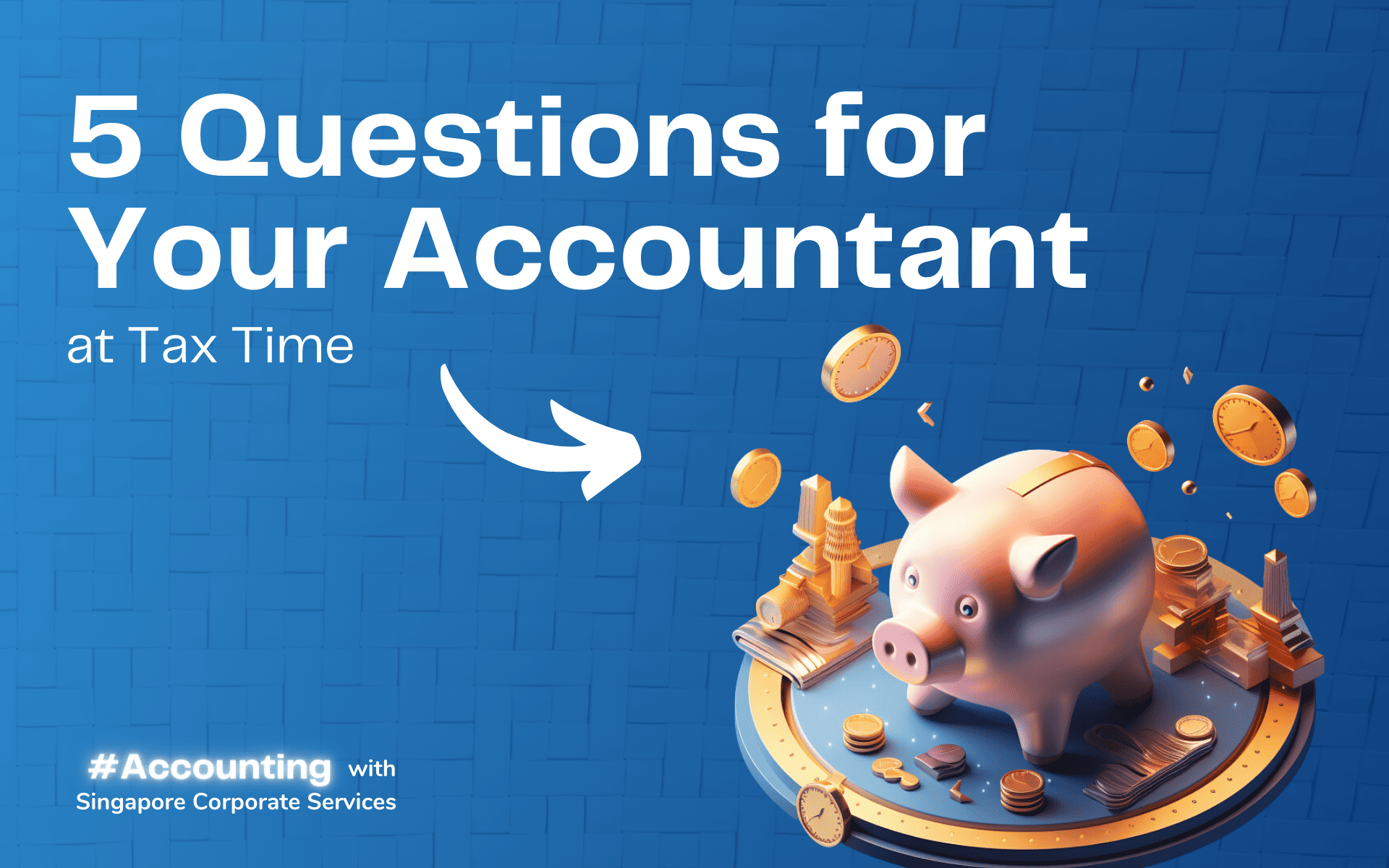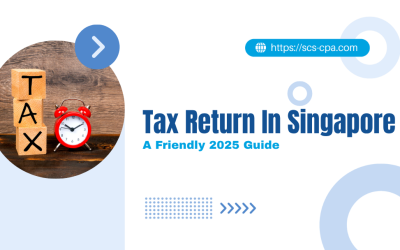In Singapore, meeting with your accountant during tax time is more than just a routine task to check off your list. It’s a valuable opportunity to receive strategic tax guidance, have your income tax queries addressed, and stay informed about the latest tax changes that can impact your business. This meeting isn’t just about filing your income taxes; it’s about ensuring that you receive the necessary support to thrive in the years ahead. Moreover, it’s a chance to optimise your tax position for the best possible tax refund.
To help you make the most of this vital meeting with your tax professional, here are five smart questions that will guide you through the tax preparation process and set you on the path to sustained growth in your business.
1.What Information Do You Need from Me?
When it comes to tax season, the last thing you want is to prolong the process of filing taxes when all you’re really after is your tax return. To achieve a seamless tax season experience, the foundation lies in staying organised and well-prepared. To this end, why not ask your accountant what they need from you and make early preparations?
Simplify your tax season and improve control over your financial data and tax-related tasks with Xero, a cloud-based accounting platform. This tool enables you to take charge of your tax season preparations and minimise the need for back-and-forth communication with your accountant.
2. How can I optimise my business’s tax strategy in Singapore?
Singapore offers a competitive tax system with various incentives to support businesses. However, the effectiveness of your tax strategy can significantly impact your financial health. Discuss with your accountant how your business can optimise tax planning, benefit from available tax incentives, and ensure compliance with the latest tax regulations. This can help reduce your tax burden and improve cash flow. For more information on corporate tax services, visit our tax advisory service page
Singapore businesses can benefit from tax exemption schemes, such as the partial tax exemption for companies. This scheme offers a partial exemption on chargeable income up to a set amount. Newly incorporated companies can also benefit from the start-up tax exemption scheme, which provides additional tax relief in their early years of operation. Keep in mind that these exemptions are subject to eligibility criteria and IRAS-defined conditions.
3. Are there any grants, subsidies, or support programs that our business may be eligible for?
The Singaporean government provides a range of grants and subsidies to support businesses in various sectors. Inquiring about available grants, subsidies, and support programs is crucial. Your accountant should be able to identify opportunities that can help reduce costs, improve cash flow, or facilitate investments in innovation and growth.
4. How are we performing compared to industry benchmarks in Singapore?
Understanding how your business stacks up against industry benchmarks in Singapore is vital for evaluating your financial health. Your accountant should be able to provide insights into key financial metrics, such as profitability, liquidity, and leverage, and compare them to industry averages. This comparison can highlight areas where you excel or need improvement, allowing you to make strategic decisions accordingly.
5. What is our financial forecast, and how can we improve it?
To ensure the long-term financial health of your business, you need to have a clear financial forecast. Ask your accountant to provide projections for revenue, expenses, and cash flow. Discuss strategies to improve profitability, manage costs, and ensure sustainable growth. Regularly reviewing and updating your financial forecast will help you stay on track and adapt to changing circumstances.
Assessing the financial health of your company in Singapore is an ongoing process that requires collaboration with your accountant. By asking these five smart questions, you can gain a deeper understanding of your business’s financial status in the context of Singapore’s dynamic business landscape. With this knowledge, you’ll be better equipped to make informed decisions and take proactive steps to secure your business’s financial well-being and future success in the thriving Singaporean market.
Understanding the Core Types of Audits and Their Roles in Accounting in Singapore
Learn the key types of audits in Singapore to build trust and stay compliant. Examples are statutory, internal, GST, and forensic.
Tax Return In Singapore: A Friendly 2025 Guide
Want to be a responsible business owner? Read this guide to tax return in Singapore to help understand tax filing and play your part.
How to Change Your Company Name in Singapore
A company's name can significantly shape its identity, yet there are times when a change becomes...




